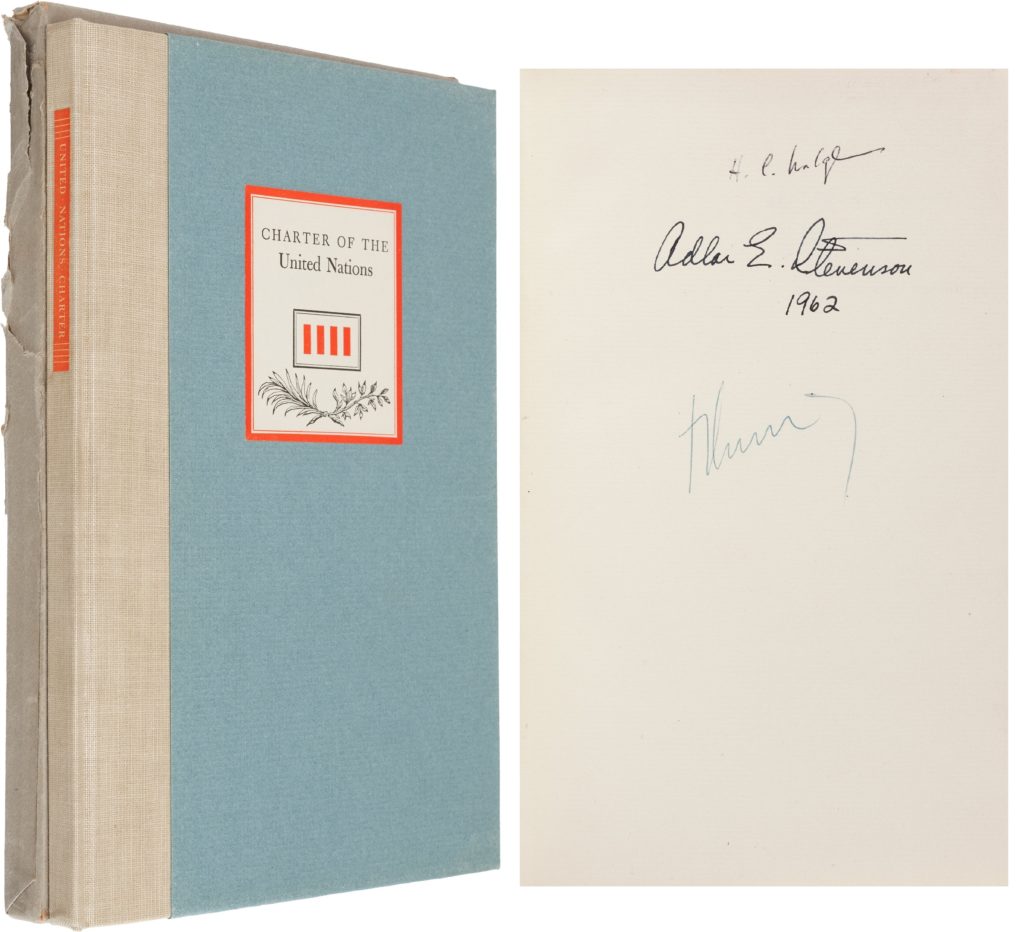
“… To save succeeding generations from the scourge of war …” — From the United Nations Charter
By Jim O’Neal
Edward Stettinius, chair of the U.S. delegation to the United Nations conference in San Francisco, signed the U.N. Charter in 1945. President Harry Truman was in attendance and later signed the document by which he ratified the charter of the United Nations.
The charter established the structure of the United Nations and outlined its guiding principles to prevent war, affirm fundamental human rights, facilitate international peace and security, promote improved living standards, and support social progress and economic advancements (whew!).
The United States, Britain and the USSR were the primary designers of the decision-making structure. The General Assembly consisted of all member countries. The Security Council, which was responsible for international peace and security, originally had 11 members, six of which were elected to two-year terms. Five – the United States, Britain, USSR, France and China – were permanent members, and each had veto power on Security Council resolutions.
Disagreements based on national interests plagued the discussions at the April conference, but they did not prevent the formal U.N. formation. There was also considerable debate about the voting process and veto provisions. Finally, on June 25, the delegates unanimously adopted the charter and the next day they all signed the document.
After the permanent members of the Security Council and most other members ratified the charter, the United Nations was officially established on Oct. 24, 1945. The world had entered a new period of international collaboration determined to avoid a repeat of the two wars that had caused so much devastation in the first half of the 20th century.
Alas, these lofty aims did not last long as the Cold War soon started, followed by major conflicts in Korea, Vietnam (twice), Afghanistan, etc. When we look around the world today, it’s estimated that the United States has Special Forces in over 70 countries (at least) and ad hoc terrorism is a routine, daily occurrence in many places. A new Cold War is gradually taking shape and even nuclear proliferation is back in the news.
Maybe conflict is in our DNA.
One thing is certain. Assuming the United Nations survives, they will have plenty to do for a long time.
 Intelligent Collector blogger JIM O’NEAL is an avid collector and history buff. He is president and CEO of Frito-Lay International [retired] and earlier served as chairman and CEO of PepsiCo Restaurants International [KFC Pizza Hut and Taco Bell].
Intelligent Collector blogger JIM O’NEAL is an avid collector and history buff. He is president and CEO of Frito-Lay International [retired] and earlier served as chairman and CEO of PepsiCo Restaurants International [KFC Pizza Hut and Taco Bell].
